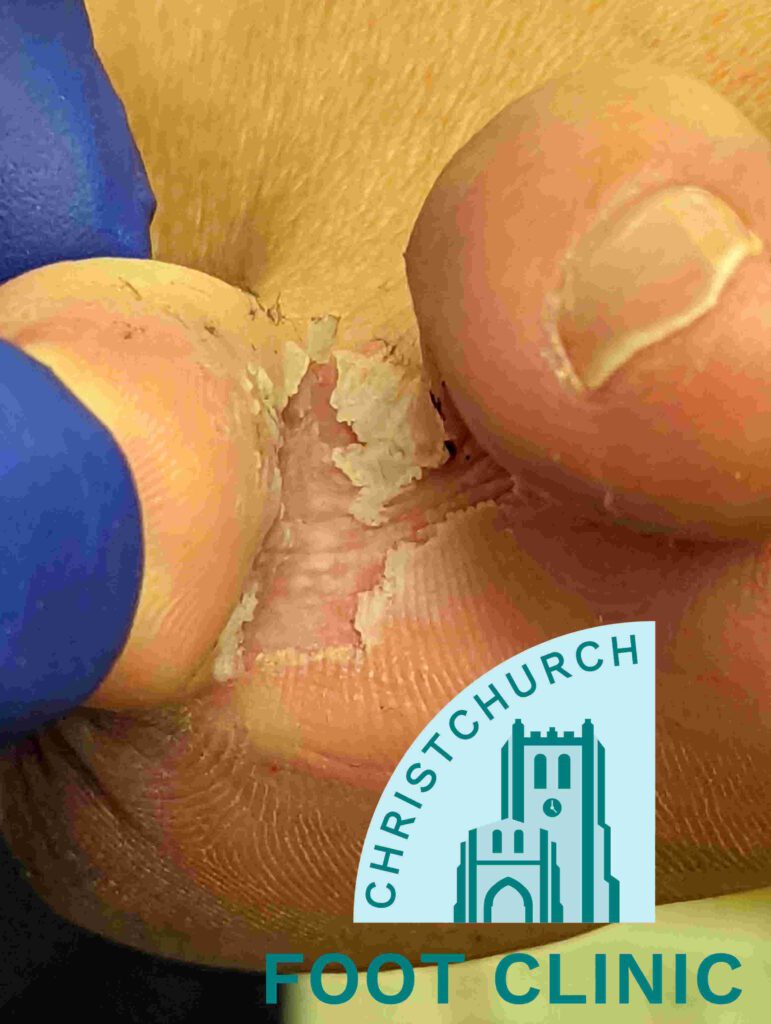Here at the Christchurch Foot Clinic we see a lot of foot problems, but did you know that the most common infection on the foot is athlete’s foot? It is so common it affects around two-thirds of all adults.
Most athletes foot isn’t noticed!

The interesting part of this is that most people don’t realise that they actually have it! That is probably why it is so common. When you ask people what it is they often say it’s an itchy skin rash you get between your toes. For some it is, but for most it just appears as dry skin on the soles of their feet but with no itching or scaling so it never gets noticed and so frequently treated.
For many patients it comes as a surprise that they have the infection – partly because they have no symptoms but partly because they say they are not athletic! But, you don’t have to be an athlete to get athlete’s foot.
What causes athletes foot?
Athletes foot is an infection of the outermost layer of the skin by a type of fungus that is adapted to living on human skin. The infection can persist for many years unnoticed and is often passed off as dry skin.
What happens if it’s left untreated?
If the infection is left untreated it can spread all over the foot. It can cause dry, flaky skin and causes the skin to weaken causing heel splits. Eventually it can spread to the toenails. Affected nails become discoloured usually yellow or brown under the nail which can spread to affect the whole nail and onto other toenails. It can also affect the hands as well.
What should I do if I suspect I have it?
If you suspect you have athlete’s foot, come and visit us. We can professionally diagnose the problem and make sure it is a fungal infection. Once diagnosed, we can supply you with appropriate treatment usually in the form of a cream or spray. We can also give you advice on how to stop it recurring and how to remove it from your shoes and socks, for example. If it has spread into the nail it can be more difficult to treat and we can talk through the options available to you..
